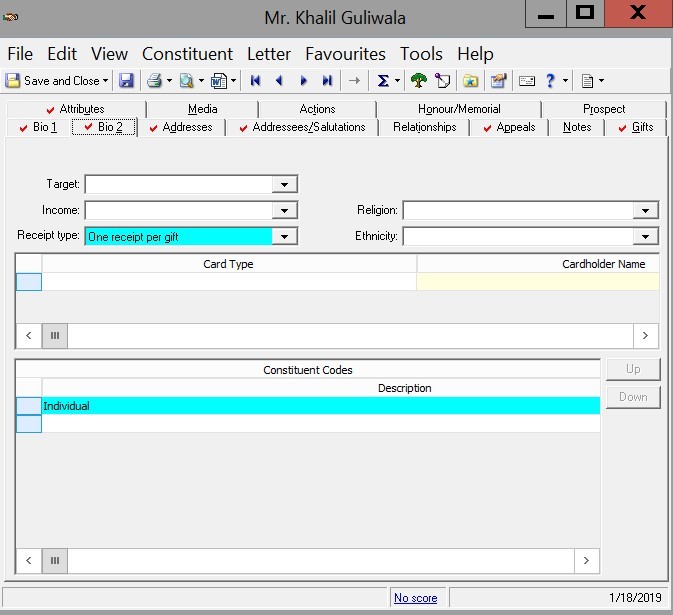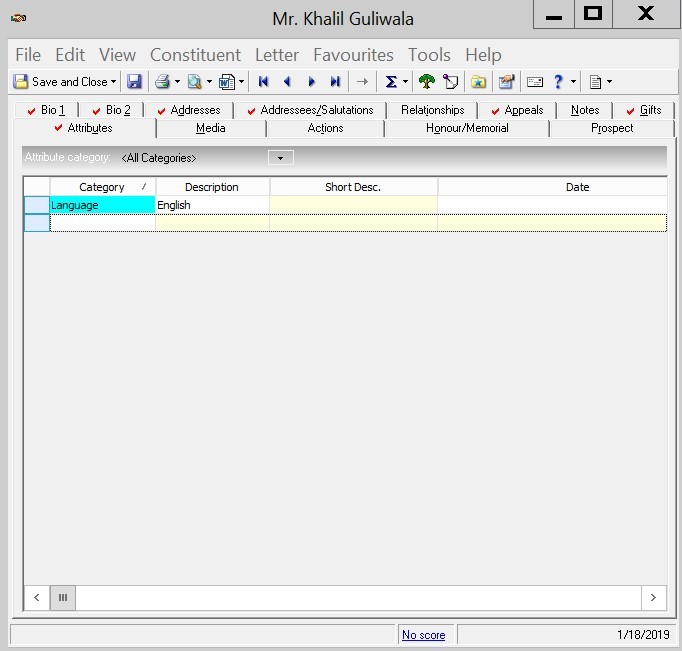- Home
- About Us
- The Team / Contact Us
- Books and Resources
- Privacy Policy
- Nonprofit Employer of Choice Award

 As Canadians, we’re proud of our bilingual heritage.
As Canadians, we’re proud of our bilingual heritage.
In fact, to tinker with another language, to look for points of commonality between it and the languages we know more intimately, to immerse oneself in it, and finally to be able to act and react to the world through a different grammar – it’s something that fundamentally enriches us as human beings.
However, as much as we try, we don’t always get it right.
In November 2018, when Ontario Premier Doug Ford proposed cuts to French-language services in Ontario, the backlash from Franco-Ontarians and Canadians, both English and French-speaking, reminded us that as Canadians, we want to be an inclusive society that promotes and protects both official languages.
And when it comes to fundraising, ensuring that we provide prospects and donors with the smoothest journey possible requires connecting to donors on their terms, in their language.
While some Canadian charities do not yet have the reach or the budget to have multi-language communications, as some of our polyglotic European counterparts do, our fellow French-speakers (also known as “francophones”) across this land do need a bit more loving, and a little more respect than we’ve shown them in the past.
Which leads us to ask: what best practices can we adopt to tracking a prospect’s or donor’s language in our donor databases? And more importantly, which simple data strategies can make the francophone donor journey smoother than it currently is?
Using donor databases to track language
Some databases, like RENXT, have many great options for tracking Language. Possible fields that are also quick to access when browsing a record could be the or fields on Bio 2.
Note: RENXT let’s you conveniently rename fields in configuration.

Another option is to create a Constituent Attribute Category and create a Table with Descriptions <English> and <French>.

A common data entry issue is when records are entered without a language code, or what to do when a record is presented to the data entry team without a language code.
There are 2 broad ways to handle this:
1. Select a default language as part of your organization’s data entry policies and procedures.
This is the easier option. For a charity whose donorbase primarily speaks English, it could have as part of its policies and procedures the assigning of English as the default language of any constituent record, while specific constituent records are assigned a language code of French depending on other available information, either taken singularly or as a cluster, such as:
• residency in Quebec,
• a cheque written out in French,
• the donation made on a French donation page
• the selection of French on a donation coupon or donation page,
• a donor comment, email, or phone call in French, etc
2. Set up a point scale to help assign a language for every record
This is more labor-intensive option. It requires a case-by-case assessment of each constituent record and assigning of a language code.
• If the title is Mr. or Ms. or Mrs. = English
• If the title is Monsieur or Madame = French
• If a cheque is made out in English (“Twenty dollars only”) = English
• If a cheque is made out in French (“—Vingt—") = French
• If the donation is made on the English donation page = English
• If the donation is made on the French donation page = French
It’s important to set up a weekly or monthly review of records to ensure that if a donor communicates another language preference than the one on file, that this is not only updated in the constituent record’s language field, but all other language-related fields are updated as well (e.g. Title, Addressee, Salutation).

Lea Hardcastle is the leading digital technologist at the Trans Canada Trail (TCT) and one of the frontrunners in this country when it comes to the early adoption of technology for charitable purposes.
Khalil Guliwala is a bilingual data analyst/ fundraiser/ AFP Canada Fellow in Diversity and Inclusion (2018-2019)  from Montréal, Québec.
from Montréal, Québec.